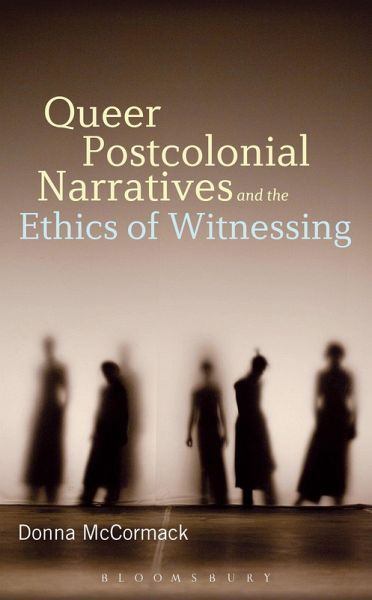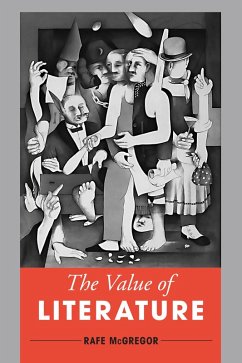
Queer Postcolonial Narratives and the Ethics of Witnessing (eBook, ePUB)
Versandkostenfrei!
Sofort per Download lieferbar
32,95 €
inkl. MwSt.
Weitere Ausgaben:

PAYBACK Punkte
16 °P sammeln!
Queer Postcolonial Narratives and the Ethics of Witnessing is a critical study of the relationship between bodies, memories and communal witnessing. With a focus on the aesthetics and politics of queer postcolonial narratives, this book examines how unspeakable traumas of colonial and familial violence are communicated through the body. Exploring multisensory epistemologies as queer and anti-colonial acts of resistance, McCormack offers an original engagement with collective and public forms of bearing witness that may emerge in response to institutionalized violence. Intergenerational, commun...
Queer Postcolonial Narratives and the Ethics of Witnessing is a critical study of the relationship between bodies, memories and communal witnessing. With a focus on the aesthetics and politics of queer postcolonial narratives, this book examines how unspeakable traumas of colonial and familial violence are communicated through the body. Exploring multisensory epistemologies as queer and anti-colonial acts of resistance, McCormack offers an original engagement with collective and public forms of bearing witness that may emerge in response to institutionalized violence. Intergenerational, communal and fragmented narratives are central to this analysis of ethics, witnessing, and embodied memories. Queer Postcolonial Narratives and the Ethics of Witnessing is the first text to offer a sustained analysis of Judith Butler's and Homi Bhabha's intersecting theories of performativity, and to draw out the centrality of witnessing to the performative structure of power. It moves through queer, postcolonial, disability and trauma studies to explore how the repetition of familial violence - throughout multiple generations -may be lessened through an embodied witnessing that is simultaneously painful, disturbing and filled with pleasure. Its focus is selected literary texts by Shani Mootoo, Tahar Ben Jelloun and Ann-Marie MacDonald, and it situates this literary analysis in the colonial histories of Trinidad, Morocco and Canada.













